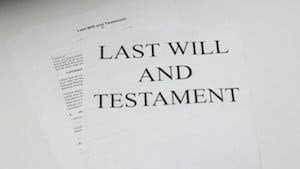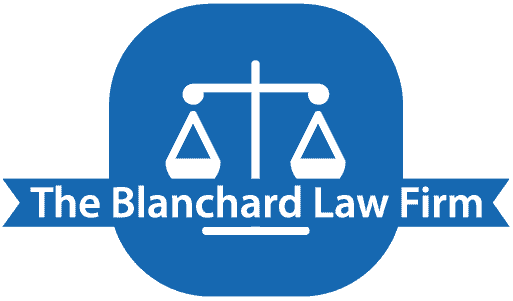
15 Feb Probate vs. Non-Probate Assets: What You Need to Know
Probate vs. Non-Probate Assets: What You Need to Know
Understanding the difference between probate vs. non-probate assets is crucial for effective estate planning. Whether you’re planning your estate or dealing with the estate of a loved one, knowing the distinction can streamline the process and potentially save time and money. In this comprehensive guide, we’ll delve into the nuances of probate and non-probate assets, providing clarity on their definitions, implications, and how they impact the distribution of an estate.
Defining Probate Vs. Non-Probate Assets
Probate assets are those that are subject to the probate process upon the owner’s death. These typically include assets solely owned by the deceased individual without a designated beneficiary or joint owner. On the other hand, non-probate assets are those that bypass the probate process and transfer directly to designated beneficiaries or joint owners upon the owner’s death. When writing a will, it becomes vital to know the difference between probate vs. non-probate so you can better prepare for your (and your beneficiaries) futures.
Understanding Probate Assets
Real Property. Real property refers to land and any structures attached to it. Probate assets in this category include sole ownership properties without a designated beneficiary or joint owner. Probate assets such as a family home can sometimes lead to complications and delays in distribution, as they must go through the probate process before being transferred to heirs.
Personal Property. Personal property encompasses tangible items such as vehicles, furniture, jewelry, and artwork. Probate assets in this category include items solely owned by the deceased individual without a designated beneficiary. During the probate process, personal property may need to be appraised and inventoried before distribution among heirs, which can prolong the settlement process.

Exploring Non-Probate Assets
Jointly Owned Property. Assets held jointly with rights of survivorship automatically transfer to the surviving owner(s) upon the death of one owner. These assets bypass probate and are considered non-probate assets. Jointly owned property, such as joint bank accounts or real estate, offers a seamless transfer of ownership, avoiding the time-consuming probate process.
Retirement Accounts. Retirement accounts, including IRAs, 401(k)s, and pensions, often allow the account owner to designate beneficiaries. Upon the owner’s death, these assets transfer directly to the named beneficiaries, bypassing probate. Non-probate assets like retirement accounts provide a straightforward method of asset distribution, allowing beneficiaries timely access to funds without probate delays.
How Probate Vs. Non-Probate Assets Can Impact Your Will
Probate vs. non-probate assets can significantly impact the execution of your will upon your passing. Assets subject to probate, such as real estate, vehicles, and personal belongings solely owned by you, must go through the probate process before being distributed to your beneficiaries as outlined in your will. This means that the distribution of these assets may be delayed as the probate court validates your will, resolves any disputes, and oversees the administration of your estate.
Additionally, probate assets are subject to probate fees, attorney fees, and other expenses, which can reduce the overall value of your estate and affect the inheritances received by your beneficiaries. Understanding how probate assets interact with your will allows you to make informed estate planning decisions and consider strategies to minimize probate involvement, such as establishing trusts or designating beneficiaries on accounts and policies. By proactively addressing probate concerns, you can ensure that your wishes are carried out efficiently and that your loved ones are provided for according to your intentions.

Navigating the Probate Process
- Initiating Probate: The probate process typically begins when the executor named in the deceased individual’s will files a petition with the probate court. The court then validates the will and appoints the executor to administer the estate. Probate proceedings vary depending on state laws and the complexity of the estate, but generally involve asset inventory, debt payment, and distribution to heirs.
- Probate Expenses: Probate expenses, including court fees, attorney fees, and executor fees, are paid from the estate’s assets before distribution to beneficiaries. These expenses can significantly diminish the estate’s value, affecting the inheritances received by heirs. Understanding and minimizing probate expenses is essential for preserving the estate’s value and maximizing beneficiaries’ inheritances.
Strategies to Avoid Probate
Now that we understand a little more about the probate process and how it can affect your assets, let’s discuss how to avoid probate altogether.
- Establishing Trusts: Creating a revocable living trust allows individuals to transfer assets into the trust during their lifetime, bypassing probate upon their death. Trust assets are distributed according to the terms outlined in the trust document, offering privacy and flexibility in estate planning.
- Beneficiary Designations: Designating beneficiaries on financial accounts, life insurance policies, and retirement plans ensures these assets transfer directly to the named beneficiaries outside of probate. Regularly reviewing and updating beneficiary designations is crucial to reflect any life changes or estate planning updates.
How A Probate Lawyer Can Help You With Probate Vs. Non-Probate Assets
A probate lawyer plays a crucial role in guiding individuals through the complex legal processes involved in estate administration. With expertise in probate law, these professionals assist executors, beneficiaries, and heirs in navigating the intricacies of probate proceedings. From initiating the probate process to resolving disputes and distributing assets, a probate lawyer provides invaluable support every step of the way. They ensure that all legal requirements are met, estate debts are settled appropriately, and assets are distributed by the deceased individual’s wishes or applicable laws. Additionally, probate lawyers offer personalized advice and solutions tailored to the unique circumstances of each estate, alleviating stress and facilitating a smoother transition for all parties involved. Their expertise and guidance are essential in safeguarding the interests of clients and facilitating the efficient resolution of probate matters.

Conclusion
In summary, it’s essential to note several key points regarding probate and non-probate assets. Firstly, understanding the distinction between these asset types is crucial for effective estate planning and administration. Probate assets, subject to court-supervised distribution, can result in delays, expenses, and potential disputes, impacting the overall value of the estate. Conversely, non-probate assets offer a streamlined transfer of ownership to designated beneficiaries, bypassing the probate process altogether. Secondly, proactive estate planning strategies, such as establishing trusts and designating beneficiaries, can minimize probate involvement, preserve privacy, and expedite asset distribution. Lastly, seeking guidance from legal and financial professionals is advisable to navigate the complexities of probate and non-probate assets, ensuring that your wishes are fulfilled and your loved ones are provided for according to your intentions. By addressing these considerations, individuals can effectively manage their estates and leave a lasting legacy for future generations.
Related Questions
What is the main difference between probate and non-probate assets?
The main difference lies in how these assets are distributed upon the owner’s death. Probate assets require court supervision for distribution, while non-probate assets transfer directly to designated beneficiaries without probate.
Do all assets go through probate?
No, not all assets go through probate. Non-probate assets such as jointly owned property, retirement accounts with designated beneficiaries, and assets held in trusts bypass the probate process.
How long does the probate process typically take?
The duration of the probate process varies depending on factors such as the complexity of the estate, state laws, and potential disputes. It can range from several months to several years in more complex cases.
Can I contest a will during probate?
Yes, interested parties may contest a will during probate if they believe it is invalid due to reasons such as undue influence, lack of capacity, or fraud. Contesting a will can prolong the probate process and may require legal assistance.
Are probate expenses deducted from the estate’s assets?
Yes, probate expenses, including court fees, attorney fees, and executor fees, are typically paid from the estate’s assets before distribution to beneficiaries. These expenses can reduce the inheritances received by heirs.
Is it possible to minimize probate expenses?
Yes, there are strategies to minimize probate expenses, such as creating trusts, designating beneficiaries on accounts, and utilizing joint ownership with rights of survivorship.

Sorry, the comment form is closed at this time.